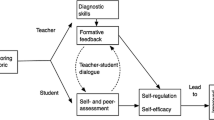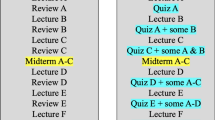Abstract
In this paper we report on the impact of a year-long teacher professional development (PD) workshop on student problem-solving skills. The PD workshop was held in Chile and promoted the use of collaborative problem-solving activities in the classroom, through monthly sessions during the school year. Participant teachers met with a monitor to solve a new problem collaboratively, plan a problem-solving activity for their next lesson, and reflect on their activities from their previous lesson. The study documents the performance of two groups of students when solving non-routine mathematics problems in two similar and non-equal tests consisting of three problems each, before and after the year of application of the workshop. The first group of students was the experimental group with collaborative problem-solving activities, as proposed in the PD workshop. The second group was the control group, composed of students whose teachers followed traditional teaching. In the first part of the paper we present the results of pre- and post-tests in which the students in the experimental group improved their problem-solving performance in a significant way compared with the control group. In the second part, we present a sample of representation strategy used by successful students in both groups and we discuss, in general, student strategies in solving test problems.












Similar content being viewed by others
Notes
ARPA is the Spanish acronym for Activating PS in the Classrooms.
Names of students used here and thereafter are pseudonyms.
References
Alibali, M. W., Phillips, K. M., & Fischer, A. D. (2009). Learning new problem-solving strategies leads to changes in problem representation. Cognitive Development, 24(2), 89–101.
Blumenfeld, P. C., Marx, R. W., Soloway, E., & Krajcik, J. (1996). Learning with peers: From small group cooperation to collaborative communities. Educational Researcher, 25(8), 37–39.
Borko, H. (2004). Professional development and teacher learning: Mapping the terrain. Educational Researcher, 33(8), 3–15.
Borko, H., Jacobs, J., & Koellner, K. (2010). Contemporary approaches to teacher professional development. In P. Peterson, E. Baker, & B. McGaw (Eds.), International encyclopedia of education (Vol. 7, pp. 548–556). Oxford: Elsevier.
Cai, J. (2000). Understanding and representing the arithmetic averaging algorithm: An analysis and comparison of US and Chinese students’ responses. International Journal of Mathematical Education in Science and Technology, 31(6), 839–855.
Cai, J. (2002). Assessing and understanding US and Chinese students’ mathematical thinking. ZentralblattfürDidaktik der Mathematik, 34(6), 278–290.
Cai, J., & Cifarelli, V. (2005). Exploring mathematical exploration: How two college students formulated and solved their own mathematical problems. Focus on Learning Problems in Mathematics, 27(3), 43.
Cai, J., & Hwang, S. (2002). Generalized and generative thinking in US and Chinese students’ mathematical problem solving and problem posing. The Journal of Mathematical Behavior, 21(4), 401–421.
Chandia, E., Rojas, D., Rojas, F., & Howard, S. (2016). Creencias de formadores de profesores de matemáticasobreresolución de problemas (Mathematics teacher educators’ beliefs on problem solving). Bolema, 30(55), 605–624.
Dahl, H. (2019). “He’s so fast at drawing”—Children’s use of drawings as a tool to solve word problems in multiplication and division. In Eleventh Congress of the European Society for Research in Mathematics Education (Vol. 3, pp. 4475–4482. Freudenthal Group, Freudenthal Institute: ERME.
Dahl, H., Klemp, T., & Nilssen, V. (2018). Collaborative talk in mathematics–contrasting examples from third graders. Education 3–13, 46(5), 599–611.
Darling-Hammond, L., Hyler, M. E., & Gardner, M. (2017). Effective teacher professional development. Palo Alto, CA: Learning Policy Institute.
Desimone, L. M. (2009). Improving impact studies of teachers’ professional development: Toward better conceptualizations and measures. Educational Researcher, 38(3), 181–199.
Desimone, L. M., Porter, A. C., Garet, M. S., Yoon, K. S., & Birman, B. F. (2002). Effects of a professional development on teachers’ instruction: Results from a three-year longitudinal study. Educational Evaluation and Policy Analysis, 24(2), 81–112.
Duijzer, C., den Heuvel-Panhuizen, V., Veldhuis, M., & Doorman, M. (2019). Moving towards understanding graphical representations of motion. In Eleventh Congress of the European Society for Research in Mathematics Education (Vol. 3, pp. 4491–4497). Freudenthal Group, Freudenthal Institute: ERME.
Elia, I., den Heuvel-Panhuizen, M., & Kolovou, A. (2009). Exploring strategy use and strategy flexibility in non-routine problem solving by primary school high achievers in mathematics. ZDM, 41(5), 605.
Fawcett, L., & Garton, A. (2005). The effect of peer collaboration on children’s problem-solving ability. British Journal of Educational Psychology, 75(2), 157–169.
Felmer, P., & Perdomo-Díaz, J. (2016). Novice Chilean secondary mathematics teachers as problem solvers. In P. Felmer, E. Pehkonen, & J. Kilpatrick (Eds.), Posing and solving mathematical problems, Research in Mathematics Education Series (pp. 287–308). Cham: Springer.
Felmer, P., Perdomo-Díaz, J., & Reyes, C. (2019). The ARPA experience in Chile: Problem solving for teachers’ professional development. In Liljedahl, P., and Santos-Trigo, M. (Eds.) Mathematical problem solving. ICME-13 Monographs (pp. 311–337). Springer, Cham.
Francisco, J. M. (2013). Learning in collaborative settings: Students building on each other’s ideas to promote their mathematical understanding. Educational Studies in Mathematics, 82(3), 417–438.
Gick, M. L. (1986). Problem-solving strategies. Educational Psychologist, 21(1–2), 99–120.
Heinze, A., Star, J., & Verschaffel, L. (2009). Flexible and adaptive use of strategies and representations in mathematics education. ZDM, 41, 535–540.
İmre, S., & Akkoç, H. (2012). Investigating the development of prospective mathematics teachers’ pedagogical content knowledge of generalising number patterns through school practicum. Journal of Mathematics Teacher Education, 15(3), 207–226.
Jacob, R., Hill, H., & Corey, D. (2017). The impact of a professional development program on teachers’ mathematical knowledge for teaching, instruction, and student achievement. Journal of Research on Educational Effectiveness, 10(2), 379–407.
Liljedahl, P. (2014). The affordances of using visually random groups in a mathematics classroom. In Y. Li, E. Silver, & S. Li (Eds.), Transforming mathematics instruction: Multiple approaches and practices (pp. 127–144). New York, NY: Springer.
MINEDUC [Ministry of Education Republic of Chile] (2012). Bases Curriculares Matemática; Ficha Bases Curriculares 2012. http://www.curriculumenlineamineduc.cl/605/w3-article-21321.html.
National Agency of Quality of Education [Agencia de Calidad de la Educación] (2018). SIMCE. https://www.agenciaeducacion.cl/evaluaciones/que-es-el-simce.
National Research Council. (2011). Successful K-12 STEM education: Identifying effective approaches in science, technology, engineering, and mathematics. National Academies Press.
Nistal, A., Van Dooren, W., Clarebout, G., Elen, J., & Verschaffel, L. (2009). Conceptualising, investigating and stimulating representational flexibility in mathematical problem solving and learning: a critical review. ZDM, 41(5), 627–636.
OECD (2016). Low-performing students: Why they fall behind and how to help them succeed. PISA, OECD Publishing, Paris. doi: https://doi.org/10.1787/9789264250246-en.
OECD. (2017). PISA 2015 Results (Volume V): Collaborative problem solving. PISA: OECD Publishing, Paris.
Paas, F., & Sweller, J. (2012). An evolutionary upgrade of cognitive load theory: Using the human motor system and collaboration to support the learning of complex cognitive tasks. Educational Psychology Review, 24(1), 27–45. https://doi.org/10.1007/s10648-011-9179-2.
Pijls, M., Dekker, R., & Van Hout-Wolters, B. (2007). Reconstruction of a collaborative mathematical learning process. Educational Studies in mathematics, 65(3), 309–329.
Polotskaia, E., Savard, A., & Freiman, V. (2016). Investigating a case of hidden misinterpretations of an additive word problem: structural substitution. European Journal of Psychology of Education, 31(2), 135–153.
Polya, G. (1957). How to solve it. Princeton, NJ: Princeton University Press.
Radovic, D., & Preiss, D. (2010). Discourse patterns observed in middle-school level mathematics classes in Chile. Psykhe, 19, 65–79.
Reynolds, D., & Muijs, D. (1999). The effective teaching of mathematics: a review of research. School Leadership & Management, 19(3), 273–288.
Saadati, F., & Reyes, C. (2019). Collaborative learning to improve problem-solving skills: A relation affecting through attitude toward mathematics. In Felmer, P., Liljedahl, P., and Koichu, B. (Eds.) Problem Solving in Mathematics Instruction and Teacher Professional Development. Research in Mathematics Education Series (pp. 187–202). Springer, Cham.
Schoenfeld, A. H. (1982). Measures of problem-solving performance and of problem-solving instruction. Journal for Research in Mathematics Education, 31–49.
Sofroniou, A., & Poutos, K. (2016). Investigating the effectiveness of group work in mathematics. Education Sciences, 6(3), 30.
SoucyMcCrone, S. (2005). The development of mathematical discussions: an investigation in a fifth-grade classroom. Mathematical Thinking and Learning, 7(2), 111–133.
Stein, M., Engle, R., Smith, M., & Hughes, E. (2008). Orchestrating productive mathematical discussions: Five practices for helping teachers move beyond show and tell. Mathematical Thinking and Learning, 10(4), 313–340.
Suydam, M. (1980). Untangling clues from research on problem solving. Problem solving in school mathematics, 34–50.
Swan, M. (2006). Collaborative learning in mathematics: a challenge to our beliefs and practices. Leicester: National Institute of Adult Continuing Education.
Tambunan, H. (2019). The effectiveness of the problem-solving strategy and the scientific approach to students’ mathematical capabilities in high order thinking skills. International Electronic Journal of Mathematics Education, 14(2), 293–302.
TNTP. (2015). The mirage: Confronting the hard truth about our quest for teacher development. Brooklyn, NY: TNTP.
Zazkis, R., & Liljedahl, P. (2002). Generalization of patterns: The tension between algebraic thinking and algebraic notation. Educational Studies in Mathematics, 49(3), 379–402.
Acknowledgements
The authors would like to thank the anonymous referees for their useful comments and suggestions, which improved the paper considerably. Funding from PIA-CONICYT Basal Funds for Centers of Excellence Project FB0003 and Grant PAI AFB-170001 is gratefully acknowledged. FS is also grateful for the support of CONICYT/Fondecyt Postdoctoral Project 3170673.
Author information
Authors and Affiliations
Corresponding author
Additional information
Publisher's Note
Springer Nature remains neutral with regard to jurisdictional claims in published maps and institutional affiliations.
Rights and permissions
About this article
Cite this article
Saadati, F., Felmer, P. Assessing impact of a Teacher professional development program on student problem-solving performance. ZDM Mathematics Education 53, 799–816 (2021). https://doi.org/10.1007/s11858-020-01214-1
Accepted:
Published:
Issue Date:
DOI: https://doi.org/10.1007/s11858-020-01214-1




